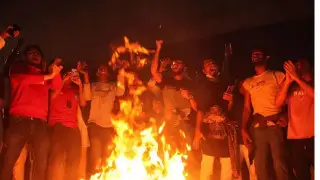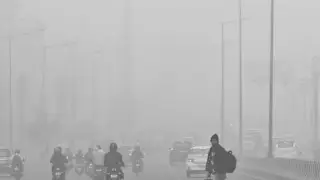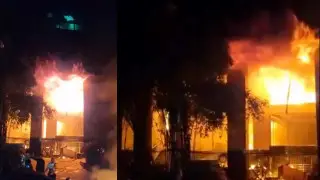
ANI
Balochistan Uprising: In a bold move, the Supreme Court of Pakistan has expressed strong disapproval of the mistreatment of families of missing persons from Balochistan province in Islamabad.
The court directed the federal government to provide a written undertaking, assuring that henceforth, no one shall be arrested "other than in accordance with the law," as reported by The Express Tribune on Sunday.
The court demanded that the undertaking be signed by senior officials of the relevant ministries. The order, released on Saturday, stated, "This court takes great exception to such high-handedness because the right to peaceful protest is among the guaranteed fundamental rights which must be honoured in letter and spirit."
Last month, a group of protestors, primarily women and children, arrived in Islamabad from Turbat district of Balochistan to protest against enforced disappearances in the province. However, the Islamabad police launched a crackdown on the protestors, detaining dozens of them, a move criticised widely by civil society and political leaders.
Subsequently, the authorities announced the release of the protestors based on the order of the Islamabad High Court (IHC). Referring to its previous order, the Supreme Court emphasised that the right to assemble and protest is legitimate, provided it is peaceful and complies with the law imposing reasonable restrictions in the interest of public order.
The written order detailed the information that the Commission of Inquiry on Enforced Disappearances must provide to the apex court before the next hearing of the case. This includes names, parentage, and addresses of missing individuals, details of the reporter, date of disappearance, and efforts made to locate the missing person.
The commission is instructed to submit this information electronically and in hard copy to the Attorney General for Pakistan (AGP) within 10 days. The AGP, upon receipt, will respond within 20 days, addressing why production orders were not complied with, and submit a report to the court.
The order also addressed the disappearance of legislation on enforced disappearances from the Senate Secretariat during the PTI's rule. The court noted that the bill, moved by former Minister for Human Rights Shireen Mazari, had already been passed by the National Assembly.
While serious allegations were made against Senate Chairman Sadiq Sanjrani, elected by the votes of the same party, the court emphasised that unless he is arrayed as a party, attending to the allegations against him would not be appropriate.
This decisive stance by the Pakistan Supreme Court marks a significant step towards safeguarding fundamental rights and addressing the pressing issue of enforced disappearances.













Copyright © 2025 Top Indian News
